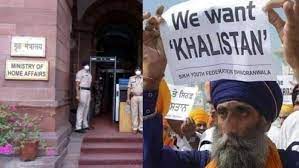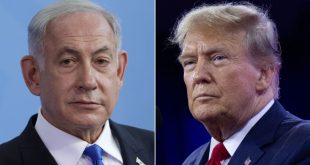New Delhi. In a major dent in Khalistani separatism, a wanted terrorist and top leader of Khalistani Tiger Force (KTF) Hardeep Singh Nijjar was shot dead ( finished) in Surrey, Canada. According to officials of intelligence agencies, the local authorities have confirmed the murder by two bike-borne assailants.
During the last one month, many Khalistani leaders present all over the world including Pakistan have been eliminated. First, on March 23, the Punjab Police arrested Amritpal Singh in Moga district. This deeply hurt the Khalistani groups’ agenda of reviving terror in India.
Then in May, the news of the murder of 63-year-old Khalistani terrorist Paramjit Singh Panjwar, sitting in Pakistan, came to the fore. He was among the top leaders of the Khalistan Commando Force (KCF). The organization was banned in India in 2020 under the Unlawful Activities Prevention Act (UAPA) and Panjwar was notified as a terrorist by the Indian government.
At the same time, Khalistani supporter Avtar Singh Khanda, who planned to attack the Indian Embassy, died in Britain last week. Sources told that he was suffering from blood cancer.
Efforts to catch Pannu intensified
Top officials claim that Khalistani terrorist organizations in Britain and Canada have shrunk completely due to infighting and these recent deaths and now the top priority of the government is to nab Gurpatwant Singh Pannu, the head and legal advisor of another Khalistani group ‘Sikh for Justice’ has been made.
Sources said that while a team of the National Investigation Agency (NIA) had reached Britain a few days back, the Government of India is also dealing with the Khalistani terrorists in a diplomatic manner. India has raised the issue of support to such terrorist groups in front of Canada, Britain and America and demanded action against these groups.
read this also- India’s most wanted Khalistani terrorist Hardeep Singh Nijjar was killed, NIA had kept a reward of 10 lakhs
It has come to the notice of the Central Government that certain organizations and individuals based in India and abroad such as ‘Sikhs for Justice’ have entered into a criminal conspiracy with other terrorist organizations and gangs and launched a concerted campaign in the name of ‘Punjab Referendum 2020 for Khalistan’ Is. According to the government, they are ‘social media for separatist and terrorist activities’ with the intention of inciting members of the Sikh community to launch agitations aimed at secession of the state of Punjab from the Union of India, harming the sovereignty, unity and territorial integrity of India. Raising money on media.
These separatist and radical elements, including Pannu, have been ‘inciting disaffection through their seditious, defamatory and seditious activities’.
nijjar roll
Hardeep Singh Nijjar was born in October 1977 in Pura, Jalandhar. He was initially involved in petty crime and then became the head of KTF after leaving the country.. He was actively involved in the operation, networking, training and funding of KTF modules and members.
Nijjar was an accused in a case registered by the NIA. During investigation, it was revealed that he had shared inflammatory statements, posts, photos and videos on social media platforms to spread ‘seditious and hate speech’. According to the NIA, the evidence proved that he was involved in ‘seditious activities to create disharmony among different communities in India’.
Nijjar is also an accused in various cases being probed by the Punjab Police. He has some land in his name in his native village in Bhar Singapura, Jalandhar.
Nijjar was involved in cross border terrorism
Nijjar, who lives in Canada, was also designated as a ‘terrorist’ by the Ministry of Home Affairs in July 2020. He was the head/president of the Guru Nanak Sikh Gurdwara in Surrey.
According to NIA, it was on Nijjar’s instructions that SFJ got involved in terrorist activities of other banned terrorist organizations like Khalistan Liberation Force, Babbar Khalsa International, International Sikh Youth Federation, Khalistan Tiger Force etc. These activities include smuggling of terrorist hardware such as arms, ammunition, explosives, IEDs etc. across international borders.
The smuggled goods are used by members of terrorist organizations and criminal gangs operating in different parts of the country to carry out terrorist acts like bomb blasts, target killings etc.
 Indian Thought Latest News & Views
Indian Thought Latest News & Views



